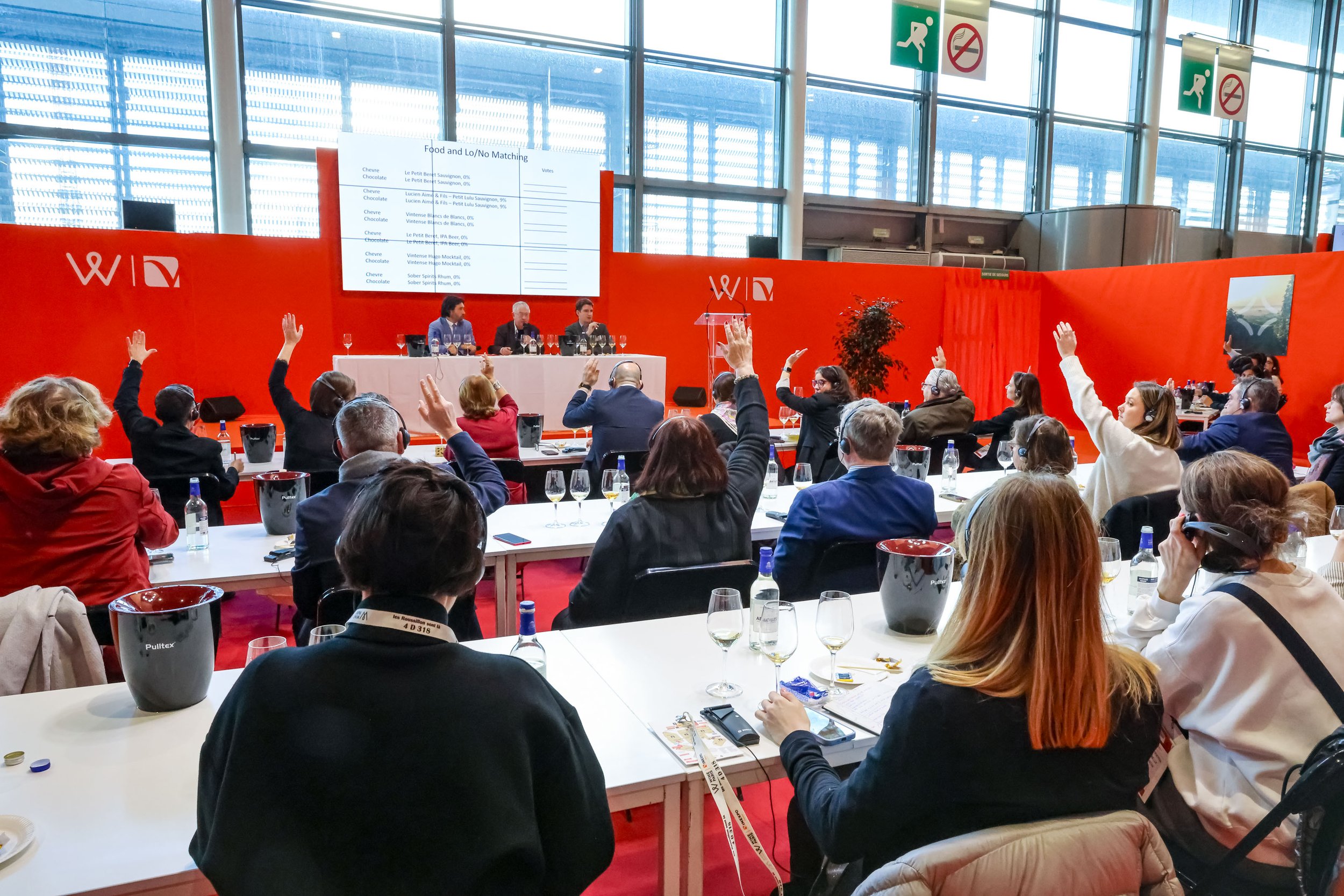Pouring progress - Wine Paris ‘24 examined...
Wine trade fairs and tastings first gained popularity in the 1970s but are they still relevant for today’s trade and wine drinking consumer? Lilla O’Connor reports on her trip to Wine Paris 2024 and examines whether this popular trade show is stuck in the past or leading the debate on key industry topics.
Wine Paris 2024 saw exhibitor numbers rise to 4,074, representing 48 producer countries and a 53% growth of international exhibitors. Visitor attendance was also up by 14% on last year to 41,253 and included 41% international visitors from 137 countries. Let’s put aside, for one minute, what that means in terms of carbon footprint…..
Content-wise, Wine Paris was rich in seminars with over 100 stretched over three days, each one, I’m hoping, designed to answer its own piece of the question: what sets the wine trade apart? What innovative approaches are we embracing in an industry at the mercy of global warming, changing customer demands and digitalisation.
Given my work on a transformative solution guiding wineries and wine businesses on their journey to a more sustainable future, naturally I arranged my visit around seminars amplifying the message of positive impact on the world of wine ranging from eco-friendly practices to technological advancements.
Wine Paris is held annually at Porte de Versaille.
Shortly after the show opened its doors, I headed to the Gérard Bertrand masterclass celebrating the 100th anniversary of biodynamics. Gérard explained how his 20 years of practicing this farming method contributed to the resilience and quality of his wines, the expression of terroir across 17 Châteaux and estates, the health of his living soils and the preservation of biodiversity.
Next were masterclasses on ‘Carbon trajectory and regenerative viticulture for global progress’ and ‘How the wine industry can limit its overall impact’ featuring Wine Pilot, a digital platform for measuring carbon footprint and managing decarbonisation principles. All had one question: what are the quick sustainability wins that most winemakers can easily implement into their processes?
With carbon neutrality becoming an important part of national and international objectives like the Paris Agreement, discussions provided first-hand information from pioneers - tech startups, winemakers, sustainability experts - who are championing sustainability. They discussed strategies like staff awareness through training, measuring carbon footprint, changing farming practices, encouraging biodiversity, and reducing bottle weight. While more complex answers included buying extra land, bio stimulation of the plant, and using more suitable rootstock. The root of the problem seems to be measurement and strategy. Knowing where one stands with regards to circularity and establishing an understanding of where they want to get to. But the bottom line in all of those cases comes down to one thing: successfully recording data and knowing how to analyse it.
Wine Paris attracts more than 41,000 visitors.
Ever-growing consumer demands, especially from the new generation of drinkers, also got some attention. Waitrose weighed in - with a discussion on ‘How Waitrose is making its portfolio more sustainable’. Barry Dick MW, Waitrose's BWS sourcing and sustainability trading manager, and Clem Yates MW, a consultant specialising in wine sourcing for the UK, discussed Waitrose’s response. Throughout their strategy, called "Loved & Found," Waitrose aims to reduce the carbon footprint by using more sustainable materials, such as lightweight glass bottles, and transporting wine in bulk. They focus on sourcing interesting grape varieties globally and emphasise cork closures, with over 40% of their wines utilising cork. The "Loved & Found" range, comprising 12 wines, exclusively uses cork closures to eliminate single-use plastic. Waitrose is committed to challenging suppliers and industry norms to prioritise sustainability, and they actively seek customer feedback and involvement in their schemes, including initiatives like cork recycling. This approach has already resulted in the removal of half a ton of single-use plastic from the market, and Waitrose continues to explore further sustainable practices for the future.
Robert Joseph, Marc Almert and Dominique Laporte’s panel debate on no/low.
Last but not least was the chance to hear on developments in the no/low category with one of the most experimental panels - Robert Joseph, Marc Almert and Dominique Laporte - discussing the place that alcohol-free beverages has in the future of the wine industry. Dominique has developed a unique natural formula, an innovative technical process that brings out the best in grapes and nature; without alcohol (or dealcoholisation) to retain only the essential. Is this the answer to the general decline in wine consumption and to the ongoing livelihoods of wineries around the world?
As I reflect on my experience at Wine Paris 2024, I’m prompted to ponder the evolving landscape of the wine industry and its response to pressing challenges and emerging trends. Throughout Wine Paris sustainability emerged as a central theme, a subject that resonates with me deeply. Change is in the air, raising more questions and one certainty: the wine industry today, more than ever, needs to unify. It needs to create a common playground for listening and learning from each other’s practices in order to keep up with global warming, changing customer demands, and digitalisation. And, as long as wine trade fairs like Wine Paris continue play their part in moving the industry forward they will continue to sustain themselves as much as they will help to sustain the industry they serve.
Photos by Jean-Bernard Nadeau: Wine Paris & Vinexpo Paris 2024. An event by Vinexposium.
Lilla O’Connor is working to build a transformative solution for wineries and wine businesses to propel the sustainability agenda, guiding companies on their journey to a more sustainable future. To find out more about Positive Impact Concept and how your business could be involved in their pilot program reach out to Lilla via LinkedIn or Instagram.




